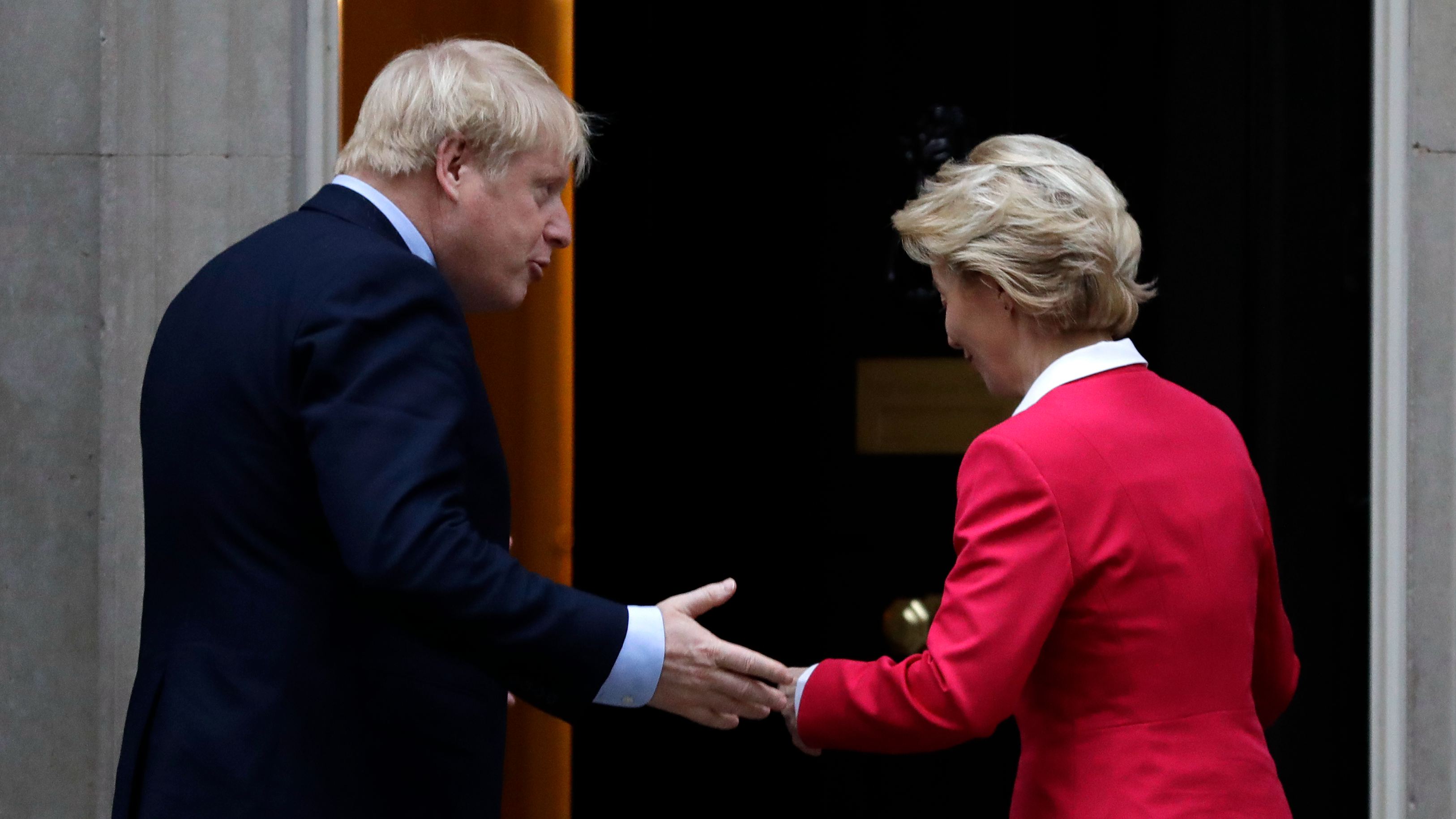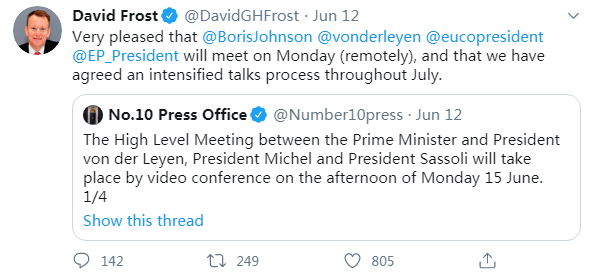After months of minimal progress in negotiations over a post-Brexit deal, British Prime Minister Boris Johnson and EU leaders will hold a video conference on Monday with just six months remaining to strike and ratify a deal on a new relationship between the UK and the European bloc.
Brexit has taken a back seat in recent months as the COVID-19 pandemic and its fallout dominated the continent, but with the clock ticking and the UK government refusing to consider an extension, the remote meeting is designed to kick start the process.
"The high-level meeting was always envisaged as a moment to push the negotiations forward," a UK government official told the Financial Times. "We now need to get this resolved and deliver certainty for businesses at home and in the EU as soon as possible."

Britain's Prime Minister Boris Johnson greets European Commission President Ursula von der Leyen outside 10 Downing Street in London, January 8, 2020. /AP
Britain's Prime Minister Boris Johnson greets European Commission President Ursula von der Leyen outside 10 Downing Street in London, January 8, 2020. /AP
The presidents of the European Commission Ursula von der Leyen, European Council Charles Michel and European Parliament David Sassoli will join Johnson for the first top-level meeting between the sides since the UK formally left the bloc in January.
Britain remains inside the EU for all intents and purposes during a transition period which concludes at the end of 2020. The option to extend that transition – which would have to be agreed by July 1 – has been floated by EU negotiator Michel Barnier but repeatedly rejected by Johnson's government, which on Friday formally said it would not countenance a delay.

Four rounds of talks between Barnier and his UK counterpart David Frost have been held with little sign of progress being made. The main areas of contention include the EU's desire for fishing rights in UK waters, a "level playing field" dispute over competition rules and guarantees, as well as security cooperation.
Both sides have set non-firm deadlines – the UK by autumn, the EU by the end of October – for negotiations to be completed. If any sort of meaningful deal – or series of mini-deals – is to be agreed on, signs of momentum and compromise will be needed soon.
Monday's meeting looks likely to be a starting point rather than a turning point, however.
"No one expects any breakthrough unless Boris Johnson decides to surprise us," a senior EU official told Reuters. "This meeting was scheduled in the withdrawal agreement, so it is happening but no one expects much."
The UK press reported on Monday that Johnson will use the talks to warn that unless there is clear progress by the end of July, Britain will leave without a deal and trade on WTO terms.

Negotiations are set to step up a gear after Monday's meeting, with a fresh five-week timetable and the renewal of face-to-face talks confirmed last week. But the reality is that both the UK and EU will have to shift their positions relatively soon if they are to avoid a no-deal outcome.
With starkly bad economic news in the UK, where GDP fell by 20.4 percent in April against the previous month and 24.5 percent on a year earlier, the biggest fall on record, business analysts have cautioned that not having a trade deal with the EU could be calamitous for the country.
Moody's warned last week that a no-deal Brexit would "significantly damage the UK's potentially fragile recovery from its deepest recession in almost a century."
The economic picture is not much brighter in the EU, with the IHS Markit Eurozone Composite Purchasing Managers Index posting a reading of 13.6 in April – any measure below 50 indicates stagnation.
Meanwhile, a second round of trade negotiations between the UK and the United States will begin on Monday, and trade talks between London and Tokyo started last week as Johnson's government looks to deliver on the series of promises it made about the country's post-Brexit future.
The UK hopes a deal with Japan will help it join the 11-member Comprehensive and Progressive Agreement for Trans-Pacific Partnership, the revised version of the Trans-Pacific Partnership, the pact which President Donald Trump withdrew the U.S. from in 2017, the BBC reported.